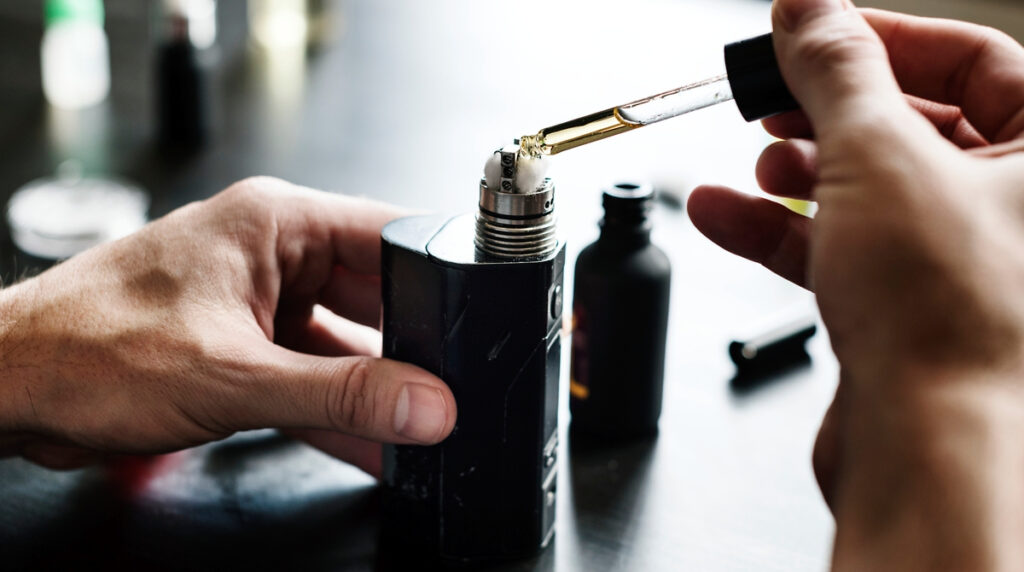Smoking is a habit partaken in millions of people across the globe. Some people are staunch believers in the power of smoking to reduce stress, but is this really the case? This article will explore the smoking-stress connection, its effects on body and mind, and techniques to quit the habit.
What is Smoking?
Smoking is an age-old practice that involves inhaling and exhaling the smoke of a variety of substances via a range of different mediums.
Cigarettes
Cigarette smoking is one of the most common forms of smoking, involving combustible tobacco cigarettes. Cigarettes are rolled by hand with a process which involves filling a short paper tube with a quality-controlled amount of finely cut tobacco leaves. Cigarettes can also come prefabricated (i.e. ready-made) with a variety of different strengths available. Whichever the preferred type, the smoker will use their mouth or nose to inhale the resulting smoke.
Pipes
Pipe smoking is a long-practised form involving loose-leaf tobacco from a pipe, similar in shape to a cigar. Like cigarettes, a pipe is lit by the loosely packed tobacco and inhaling the smoke produced. This type is hazardous, as the smoke has high tar and nicotine levels, increasing the smoker’s risk of cancer, emphysema, and heart disease.
Cigars
Cigars have traditionally been used more for recreational and celebratory reasons than cigarettes. A leaf of broadleaf or a cigar wrapper is sun-grown, hand-rolled tobacco tightly packed in a cylinder-like shape. Cigars are larger and thicker than cigarettes and contain more tobacco, with some types containing as much as 17 grams.
Vaping
Vaping is an increasingly popular alternative to traditional cigarette smoking. An e-liquid, which contains propylene glycol, glycerine, and nicotine, is vaporised to be inhaled. This method does not produce smoke or contain tobacco products.

Smokeless
Smokeless tobacco products are also popular in some countries and cultures. Examples of smokeless tobacco products include snuff, chew, and dipping tobacco. Snuff is a dry, powdered form of tobacco that is ground and bagged for easy use, while chew or dip tobacco is a moistened version with spices and flavourings.
Hookah
Hookah, also known as shisha or narghile, is an implement consisting of a water pipe, a bowl, a hose connected to a mouthpiece, and a heat source. Tobacco, glycerine, honey, and flavours such as fruit, molasses, and sugar are combined and heated using a charcoal disk. The hot tobacco and flavours pass through a hose connected to the water pipe, where it is cooled and smoked through the mouthpiece.
How Does Smoking Affect the Physical Body and Mind?
Smoking affects both the physical body and the mind in a multitude of ways:
Physical
Smoking significantly increases a person’s risk of stroke, heart attack, throat cancer and lung cancer. It damages organs, constricts the airways, and causes other problems such as teeth staining and bad breath. It reduces oxygen levels and essential nutrients to cells, so the heart works harder to pump the same amount of blood. That puts immense strain on the cardiovascular system, increasing a person’s chances of developing heart problems. It can also dehydrate the skin and leave it vulnerable to wrinkles.
Mental
Smoking triggers the release of nicotine into the bloodstream, which in turn triggers the reward system in the brain, releasing the biochemical dopamine; the biochemical then creates a feeling of pleasure. However, it also leaves the brain craving more nicotine.
Nicotine consumption has psychiatric implications, such as anxiety and depression, due to the dopamine payoff. People who smoke can also suffer from heightened social stress and struggle with day-to-day activities, especially when trying to give up smoking. Unending cravings from nicotine withdrawal also make it harder to stay motivated, which can in turn lead to a lack of social engagement as the smoker knows they will want to partake in their habit.
The Link Between Smoking and Stress
There is certainly a link between smoking and stress, both in terms of perceived stress reduction and stress causation.
Stress Reduction
The act of smoking can reduce stress purely through perception that it does so. When lighting up, people can switch from a state of stress to a ritualistic break from whatever has caused the stress. It provides a quick distraction and a basic sense of relief while helping to calm down the person.
Also, nicotine (in example within cigarettes) can impede the nervous system’s hormones and help reduce stress in the body. Nicotine forms a bond within the central nervous system, which can lead to the release of fewer stress hormones. These hormones are responsible for the physical responses to stressful situations such as rapid heart rate.
Can we help you?
Leave us your information and one of our coaches will contact you in 24H

For some smokers, the actual taste of cigarettes and the accompanying aroma may offer sensory relief. While this may not be the case for everyone, cigarettes’ familiar taste and smell may be soothing. This form of comfort is something that non-smokers may miss.
Smoking requires physical activity. Lighting a cigarette requires the use of hands. Depending on the smoker, it can often involve other cues which can provide tactile relief similar to fiddling with a pen.
Finally, simply inhaling smoke into the lungs and then exhaling can also provide a sense of relief and release to the smoker.
Stress Causation
Smoking causes stress and anxiety through the health risks [1] associated with it. There is a link between smoking and medical complications which people fear living with them. Also, the fear of death associated with smoking-related illnesses can lead to conscious and sub-conscious anxiety on a very regular basis. Living under perpetual stress can have other health ramifications, such as causing conditions of burnout and nervous system ailments.
There is a financial implication to smoking, simply put, it isn’t cheap! Buying cigarettes is expensive, and the money invested into the habit can quickly add up. The financial cost can lead to guilt, regret, and stress as people try to figure out how to keep up with their habit.
Those who smoke may feel shunned by their peers or family members who do not use the habit. That can lead to feelings stigmatization, isolation, and alienation, which can be very stressful. Additionally, it can damage relationships as some people view smokers as unsavoury, even possible dirty, and judge that a smoker might negatively influence others.
Are There Any Benefits to Smoking?
In terms of user experience, many smokers will tell you that smoking calms their nerves and helps them relax in high-pressure or burnout situations. Chemically, nicotine produces a feeling of joy by binding to nicotine receptors in the brain. However, prolonged use will reduce the number of receptors and significantly decrease the effect.
Smokers have also reported an increase in focus and alertness, anecdotally attributed to a more straightforward path of thinking.
In a more clinical setting, it can relieve certain conditions linked to various painful ailments, such as headaches and muscle aches. It can also improve the symptoms of bipolar disorder and depression. In these cases, it has the potential to alleviate a range of anxiety-related issues, at least temporarily, although the dangers remain prevalent.
Despite the potential benefits, many risks associated override even the smallest number of positives. Low-tar cigarettes have diverse levels of various toxic substances, with many mainly containing the same carcinogen-laced chemicals. Active smokers also have an increased risk of death and remove years of life.
Behaviours to Replace Smoking
There are many behaviours that can replace smoking such as the use of oral substitutes like chewing gum, hard candy, or sucking on straws. Not only is the mouth busy, but it also satisfies many smokers’ oral fixation or hand to mouth repetitive action.
Being actively involved in alternative activities like jogging and outdoor sports such as basketball or tennis can provide an effective way to release stress. Additionally, many of these activities release endorphins which help promote a sense of well-being.

Furthermore, there are a variety of supplements that can be taken. These have a combination of vitamins, minerals, and herbs intended to support the body’s natural detoxification process. Additionally, some of these supplements come from patches or gums.
Finally, change or create a daily routine that reduces the probability of smoking. For instance, after mealtimes or when drinking alcohol, ensure there is an alternative to smoking at hand. Cigarette replacement methods or even CBT techniques to change thought-patterns associated with those times of day can divert the mind from smoking.
Top Tips to Help You Kick the Habit of Smoking
Luckily, many people have successfully quit smoking and there are many tips and tricks that can be used to aid smokers in their quitting journey.
1. Have a Plan
This plan should consider the factors that led you to smoke first and apply strategies to cope with the cravings. Additionally, it should include a date when you plan to stop and a timeline of the appropriate steps.
2. Seek Support
Stopping doesn’t need to be done alone. Local cessation programs are available or find a friend who is also trying to quit to which can boost moral support and provide accountability.
3. Change Your Environment
Stay in environments where it is unacceptable to smoke and eliminate cues in the home, such as ashtrays and lighters. When these cues are present, it can spark an urge to smoke.
4. Be Physically Active
Exercise has been proven to reduce stress and can be a great way to cope with cravings. In addition to physical activity, look into more relaxing activities such as Yoga or mindfulness.
5. Avoid Triggers
Pay attention to what triggers smoking and try to avoid them. Triggers can be anything from locations to smells, moods, and even people.
Where Can I Get Help to Stop Smoking?
Turning to health professionals such as your family doctor, nurse, or therapist can provide personalised guidance. Professionals will be able to discuss nicotine replacement therapies and other medications that can help manage your cravings. They can also provide emotional support, help you find support groups, and suggest lifestyle changes to help manage your cravings.
Some websites provide educational materials, assessments, guidelines, and tips on quitting smoking. They also offer downloadable self-help tools and motivation. Additionally, you may find more information regarding hypnotherapy and counselling. The helplines can also provide professional advice for smokers.
Stress & burnout coaching; for 100% recovery!
Reducing stress and recovering from burnout is simply incredibly difficult. The coaches at Meulenberg Training & Coaching understand exactly what you are going through and know how tough it can be. They have often experienced it themselves! With their years of experience and expertise, they are ready to help you step by step toward a full recovery. The results of our one-on-one coaching and absenteeism training will benefit you for a lifetime!
FAQ
References
- CDC.gov – Health Effects – found on 20/02/2023
Link to page on cdc.gov






